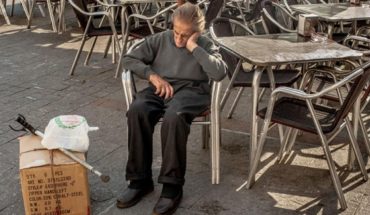In the midst of the heated parliamentary discussion that the government’s pension and tax reforms faced this week, UDI President and Senator Javier Macaya challenges the ruling party, saying: “We have had a willingness to dialogue that we demonstrated with concrete facts last November. Having signed the continuity of the constituent process gives us credibility to demand now that the Government improve its ill-conceived reforms.”
With these words Macaya justified, in conversation with El Mostrador, the critical and leading position that the parties of Chile Vamos – UDI, RN and Evópoli – are determined to assume in the legislative process and in the new constituent process.
In February, the Senate Finance Committee sent the tax reform bill to the House Chamber and the Labor Committee approved the idea of legislating the reform of the pension system, which will begin its discussion in particular on March 31.
It is in this context that Chile Vamos will face two important tasks in the coming months: to demonstrate coordination capacity as an opposition to stop, delay or accelerate the reforms that are beginning to be discussed in Congress and, at the same time, to initiate work on the new constituent process by participating in the Committee of Experts, where there were controversial nominations, such as that of Hernán Larraín for the UDI.
Faced with this medium, the president of the UDI, Javier Macaya, defended the role of his sector and pointed out that “we believe that the tax reform and the pension system are bad reforms, which generate problems in the economy,” he explained.
In Chile Vamos they warn that the quality of the reforms presented and the secrecy shown by the ruling party to approve them with as few changes as possible, is a good opportunity to attract unity on the right and replicate what they achieved in the Rejection campaign. The UDI helmsman said that “we have always been willing to act as a joint opposition when there is a confluence of interests and we put Chile ahead. I believe that the Senate will be an instance to talk with all political sectors to improve the bad reforms presented by the Government, otherwise, the Government will meet with an opposition that will say no to its bad reforms. ”
The problem, to achieve this unity of the right, is that in recent history there have been several disagreements between Chile Vamos, Republicans and the People’s Party (PDG) to coordinate in key instances, such as the constitutional accusations against Minister Giorgio Jackson and former Minister Marcela Ríos.
Regarding the new constituent process, the parliamentarian indicated that the parties of Chile Vamos are interested in contributing content to the new constitutional proposal and seeking a more prominent role than they had in the previous process. Macaya believes that Chile Vamos faces this stage “with the will to build a better future for Chile with dialogue, so that the excesses of the previous process are not repeated.” Regarding the differences that may arise inside and outside his coalition, he pointed out that “we must achieve the will to agree on this scenario where there will indeed be differences within that Constitutional Council, because the challenge is to think about Chile rather than how we grow the electoral niche of a given political project.”
Finally, Macaya said that his coalition has the necessary strength to compete successfully in the elections of constitutional councilors and, in this sense, said that “we have a territorial network composed of mayors, councilors and parliamentarians who are a good support in the work of any campaign. We also have very well positioned presidential figures, such as Evelyn Matthei or Rodolfo Carter himself, who I have no doubt will collaborate in this work. We are going to compete with the rules of democracy,” the senator concluded.
Follow us on





